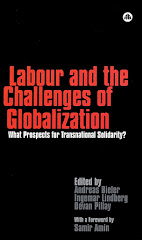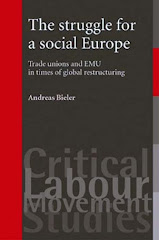In
2007/2008, banks and the global financial system were ‘saved’ at enormous
costs. Governments around the world invested billions of US dollars to ensure
that Lehman Brothers remained the only global financial services firm, which actually
collapsed. What was initially presented as a rescue effort to the benefit of
all, however, soon turned sour. Around the world, people were presented with
the bill of the bank bailout. Austerity budget after austerity budget was rolled
out.
In
the UK, Conservative-led governments have savaged the public sector and welfare
system. The very fact that we are in such a vulnerable position now is due to way
the previous crisis was handled. Cuts to funding for the NHS plus
part-privatisations have ensured that the system may buckle under additional
pressure. The relentless deregulation of the labour market, with zero hour
contracts one of the key examples, has pushed many working families below the
poverty line (see The reality of
precarious work in Brexit Britain). When schools are being closed due to
the coronavirus, many children may go hungry, as they lose access to their free
School meals (The Mirror, 13 March
2020).
Foodbanks launch emergency appeals for donations to cater for the additional
demands of people thrown into poverty (see, for example, HIMMAH).
Even
during normal times, holiday hunger is a widespread phenomenon in Nottingham,
for example, where large numbers of children live below the poverty line. ‘In Nottingham North, 39 percent of
children are in poverty and in Nottingham South the figure is 33.5 percent’ (Nottingham
Post, 24 January 2018). For the UK as the fifth largest economy in
the world a shameful situation, but ultimately not surprising. Austerity since
2010 has ensured an ever-wider gap between the rich and the poor.
Crises
such as the coronavirus cannot be predicted. The way we respond, however, is
the outcome of struggle. Will it be again the poor and working people, who have
to foot the bill, or is the burden spread this time round in a progressive manner?
The current Conservative government is unlikely to take into account inequality
across society. In fact, capital tends to use economic crises to entrench
further its interests at the expense of labour. The global financial crises was
not only followed by austerity budgets, but also a wave of privatisations and
labour market deregulation. It is up to workers to assert themselves vis-à-vis
the oncoming capitalist onslaught to ensure that it is not working people
again, who bear the brunt of the hardship!
Andreas Bieler
Professor of Political Economy
University of Nottingham/UK
University of Nottingham/UK













No comments:
Post a Comment
Comments welcome!